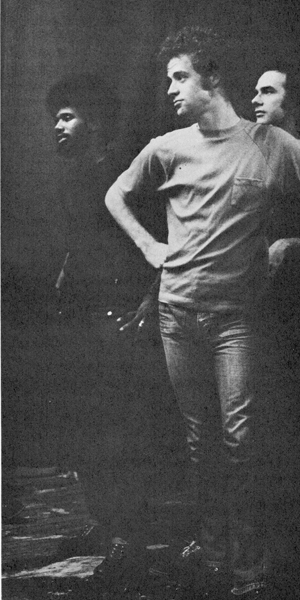 (Host) As the Democratic Convention gets underway this week in North
(Host) As the Democratic Convention gets underway this week in North
Carolina, commentator John Killacky, executive director of the Flynn
Center for the Performing Arts, reflects on how far consideration of
LGBT rights have come.
(Killacky) In 1973, I attended my first
gay pride festival. I was in New York, acting in a play entitled
"Coming Out." We were part of the festivities, as was Better Midler. When she came on stage and sang, "Friends," the future seemed resplendent with possibilities.
That
was just four years after transvestites and gay men fought back against police
intimidation at the Stonewall Inn. Their riot ignited the Gay and Lesbian
Rights movement by transforming disenfranchised isolation into a
self-affirming political and social force.
In the ‘80s and ‘90s,
AIDS ravaged the community. Gays and lesbians created organizations to deliver
basic health care services, share information, and educate their own,
all while nursing, grieving, and remembering the dead. Their poignant
struggles, heroic responses, and resultant social, political, and
medical gains are testaments to the power of personal action.
Much more has been realized in the intervening years. AIDS
is now a chronic and manageable disease. Gays and lesbians serve openly
in the military. Positive role models abound in popular culture.
Celebrities arrive on the red carpet, holding hands with their real
boyfriends or girlfriends. Larry and I celebrated our domestic partnership in
Minneapolis and our marriage in San Francisco is recognized
in Vermont. After 17 years together, I legitimately call him my husband.
Vermonters should be proud that we were the first state to
offer civil unions in 2000 followed by full marriage rights in 2009. However,
basic human and civil liberties are still battleground issues in many
states.
This week in Charlotte, the Democratic National
Convention adopts a marriage equality plank in its platform. The full
embrace of LGBT rights by a major political party in this polarized
election cycle is astounding, particularly since various court
challenges, pro and con, are wending their litigious way to the Supreme
Court. Ironic too, that the meeting is taking place in North Carolina – a
state that has a constitutional ban on same sex marriage.
The
Democratic Party, in 1980, adopted platform language opposing
discrimination against all groups of people – too bad it took them this
long to be truly inclusive. I’m sure those fierce drag queens who fought
back at Stonewall in the ‘60s and the vehement AIDS activists of the
‘80s, never imagined their struggles culminating in this paradigm shift
toward marriage equality. The arc of history is now bent toward social justice
because of their righteous acts. As I celebrate what they achieved, I
remember how much is left to do.